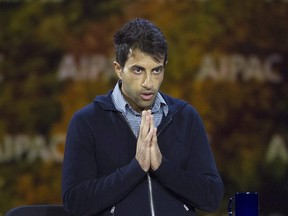Universities must remain a place for the safe and free exchange of ideas, even those that we disagree with.

However, I received an email the night before the event that the lecture would have to be moved online due to threats and social media anger. McGill said it made this decision to address safety concerns, but in my view the university is less safe by signalling that online intimidation and harassment can achieve their goals.
McGill’s capitulation sends a clear and ominous message that threats and coercion are more effective than civil discourse. When universities allow violence to dictate the boundaries of acceptable speech, they empower those who oppose dialogue to escalate their rhetoric and actions. I predict bad actors will exploit this precedent to enforce a chilling effect on future speakers with whom they ideologically disagree.
Universities must remain a place for the safe and free exchange of ideas, even those that we disagree with. They lose all credibility when particular ideologies are permitted to speak on campus, while opposing voices are forced to stay home and host their events online.
In a statement to the McGill community, deputy provost Angela Campbell and vice-president Fabrice Labeau explained the event was moved online due to “waves of online anger” and a “targeted death threat.” However, rather than cancelling the lecture, why did the administration not choose to bolster security for the event? This would have sent a strong message that the university will not cave to intimidation, and that the administration is resolutely committed to protecting the campus as a place for the free exchange of ideas.
Incredulously, Campbell and Labeau further rewarded the online hate campaign by also announcing that McGill will not approve any space bookings or guest speakers for the remainder of the semester.
The events surrounding Yousef’s lecture reveal a stark and troubling reality: When institutions yield to threats and harassment, they undermine the very principles they claim to uphold. By moving the event online and banning all guest speakers for the semester, McGill has set a precedent that emboldens those who weaponize intimidation to silence ideas they oppose.
This is not just a failure of leadership — it is an abandonment of the university’s role as a champion of free discourse and defender of academic freedom.
Stewart Wiseman is a 2022 graduate from McGill’s faculty of law, where he was the editor-in-chief of the law student newspaper.